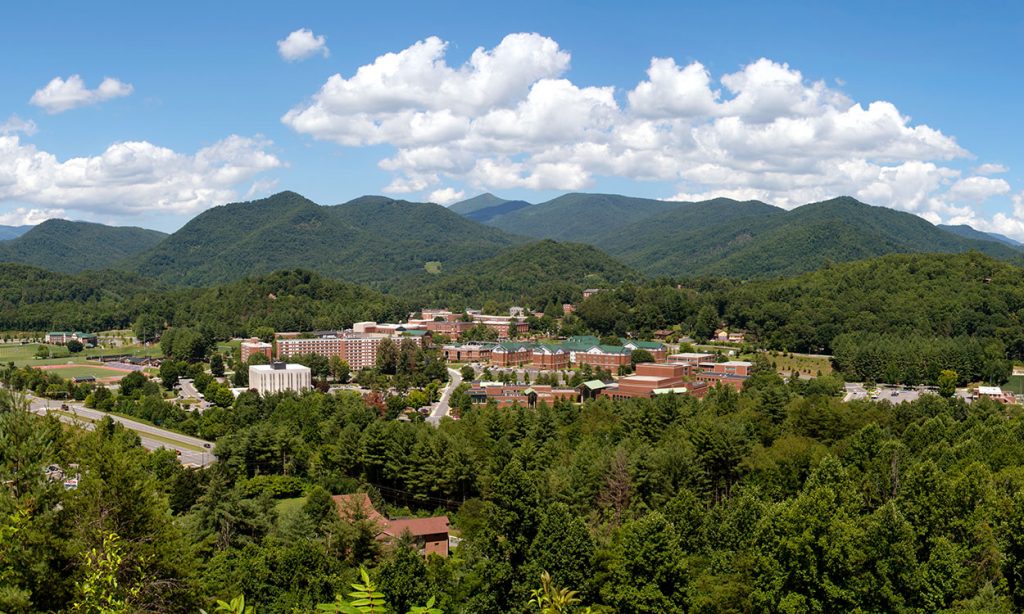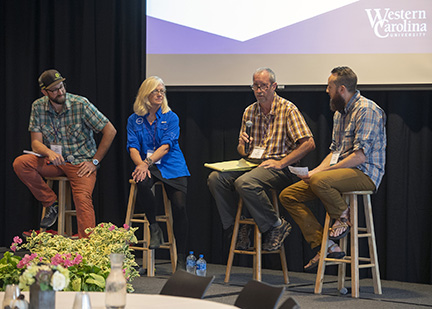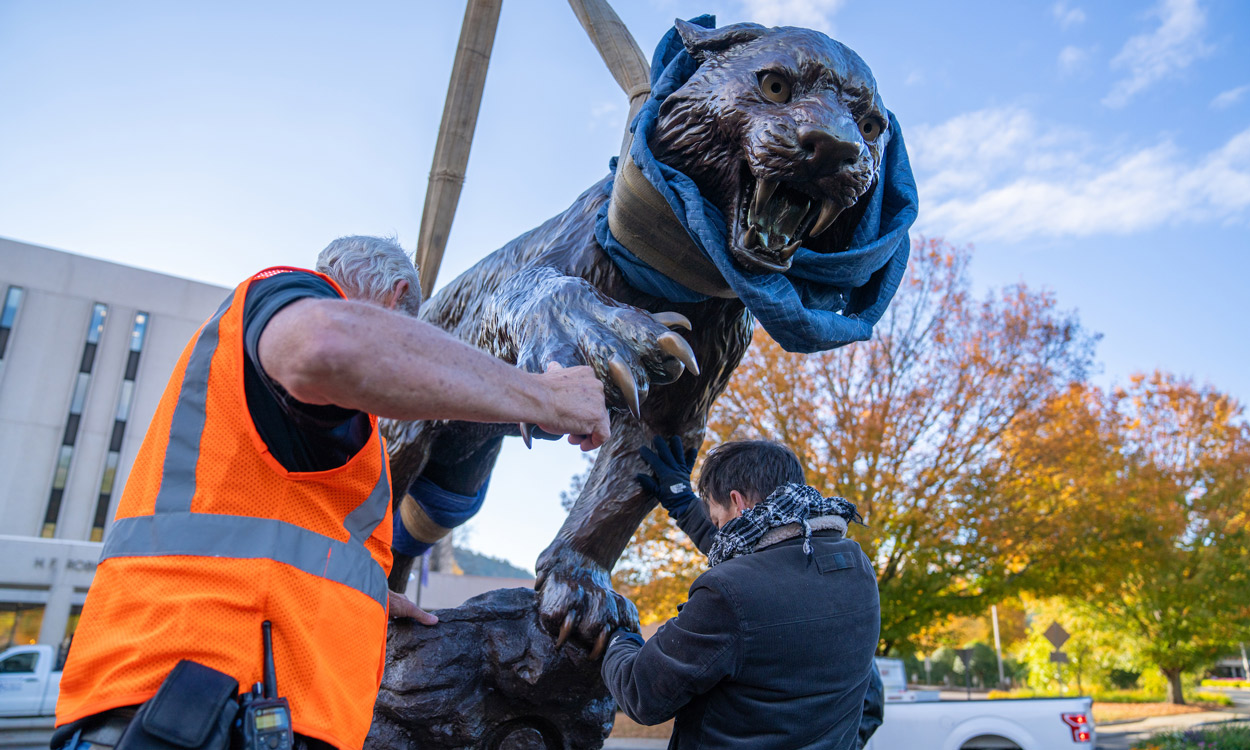Cullowhee listed among nation's most economically dynamic 'micropolitan' areas
Western Carolina University’s home community of Cullowhee has been ranked as the nation’s 13th most economically dynamic “micropolitan” area in a report recently released by the Walton Family Foundation.
The report and rankings were compiled by the foundation’s Ross DeVol and Jonas Crews following an analysis of the economic vitality of 531 micropolitan statistical areas around the U.S., with Cullowhee landing on a top-20 list that also includes Bozeman, Montana; Breckenridge, Colorado; and Key West, Florida.

The Cullowhee micropolitan statistical area reaches beyond WCU's location in the Cullowhee Valley, shown in this photo, to include all of Jackson County.
Micropolitan statistical areas are delineated by the U.S. Office of Management and Budget and are defined as one or more adjacent counties that have at least one urban core area between 10,000 and 50,000 in population, with adjacent territory having a high degree of social and economic integration with the core. The Cullowhee micropolitan statistical area reaches beyond the Cullowhee Valley to include all of Jackson County.
DeVol and Crews wrote that their analysis examined “the economic performance and indicators that impact (sic) the social and economic fabric of America” and their rankings are an attempt “to bridge a gap in identifying which smaller communities are thriving and which are struggling to provide economic opportunity for their residents.”
The rankings are derived from metrics that reflect factors such as job growth, wage and income gains, and the proportion of total jobs at “young firms” – the ratio of employment at firms five years or younger.
The report’s authors noted that a majority of the top 20 most dynamic micropolitan areas on their list are “driven by some combination of tourism, recreation and the attraction of lifestyle amenities” and that “tourism-destination locations where tourists travel long distances to obtain access to their amenities separated themselves.” They also said “micropolitans with research universities and four-year colleges witnessed superior economic growth, holding other factors constant.”

The Outdoor Economy Conference in October 2018 brought more than 250 leaders and professionals representing the outdoor recreation industry to campus to explore topics such as branding, gear design and land management, and to hear stories from successful business owners.
In their comments about Cullowhee, the authors pointed to its location near Great Smoky Mountains National Park and destinations for mountain biking, hiking and fly fishing. They also referred to WCU’s participation in a project to support outdoor industry start-ups in the area and the inaugural Outdoor Economy Conference held last fall.
“Micropolitan statistical areas are important for understanding the economic forces at work across the American landscape,” DeVol and Crews wrote. “The common perception is that most of these communities’ economies are shrinking and have been losing population for decades or at least since the Great Recession in 2008. While the overall economic performance of micropolitans has been lagging metropolitan areas, many micropolitans are thriving and adding jobs at a prolific pace.”
Arthur Salido, WCU’s executive director of community and economic engagement and innovation, said the Walton Family Foundation report, which indicates that the university is an important economic driver, will help regional leaders make a compelling case as they seek to bring new businesses, development and tourism to the area. “It is surely gratifying to have outside recognition by the prestigious Walton Family Foundation, whose report identifies Cullowhee as an attractive place to live, start a business and find a high quality of life,” he said.
The foundation, a philanthropic organization located in Bentonville, Arkansas, is led by the children and grandchildren of Walmart founders Sam and Helen Walton.

